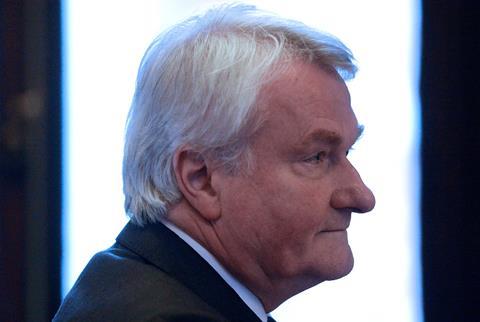Judicial recruitment remains a concern for the lord chief justice, who has revealed challenges filling vacancies on the circuit and district benches.
Lord Burnett of Maldon told the Legal Wales Conference last weekend that High Court recruitment was no longer a challenge after legislation came into force this year reversing problems caused by technical changes to judicial pensions. However, he remained concerned that 'a number of recruitment exercises run by the Judicial Appointments Commission have fallen short in providing the required number of judges'.
Problems have arisen in two areas, he said. The first is the Crown court, where the backlog of cases is currently hovering around the 60,000 mark.
Burnett said: ‘First, although recruitment to the circuit bench for the family and civil jurisdictions remains relatively buoyant, the recent recruitment round fell short in securing the number of judges we need to sit in the Crown court. That is particularly disappointing because judicial resources in the Crown court are one of the constraints of dealing with the increased outstanding caseload.’
The second is the district bench in county and family courts, ‘most pronounced’ in London and the south east.
Burnett said: ‘The judiciary is working hard to encourage applications; and so too are the Judicial Appointments Commission and the professions. But we are also looking hard at the jurisdiction of district judges and the nature of the work they do with a view to easing the burden through the use, for example, of standard directions, paper rather than oral hearings for very small claims, delegation of routine making of directions to legal advisers, the creation of virtual lists dealing with cases from overburdened parts of the country in courts with fewer problems and indeed much else.’

A Court of Appeal judgment providing guidance on fact-finding hearings ‘will have the effect of curtailing the proliferation of wide-ranging fact finds in family cases which appeared to be gaining a life of their own without the exercise being necessary for the decision of the court which was in fact being made.
‘More family cases will be heard in the magistrates’ court as capacity there increases,' the lord chief justice added.
The Ministry of Justice told the Gazette that the 2020 circuit judge competition sought 63 judges and appointed 53. However, the number of recorders selected in the 2019 and 2020 recruitment rounds exceeded targets.
The Judicial Appointments Commission said that the vacancy request in the most recent circuit judge exercise was 78. The commission received 224 applications and made 62 recommendations.
The vacancy request in the most recent district judge exercise was 100. The JAC received 247 applications and made 67 recommendations.
Steps taken by the MoJ to increase Crown court capacity include lifting the cap on sitting days and approving judges to sit in retirement.
Recruitment challenges in London and the south east 'reflect the greater demand in this region', the MoJ said. Judges have been deployed between regions to increase capacity.
A spokesperson for the ministry said: ‘Our latest annual recruitment round will appoint 1,000 judges across all jurisdictions, including 80 circuit judges and 125 recorders. We are also improving pay and pensions, and have increased the judicial retirement age to encourage more to stay in office, while our new £1m recruitment drive will see a further 4,000 magistrates appointed over the next few years.’
This article is now closed for comment.



























15 Readers' comments